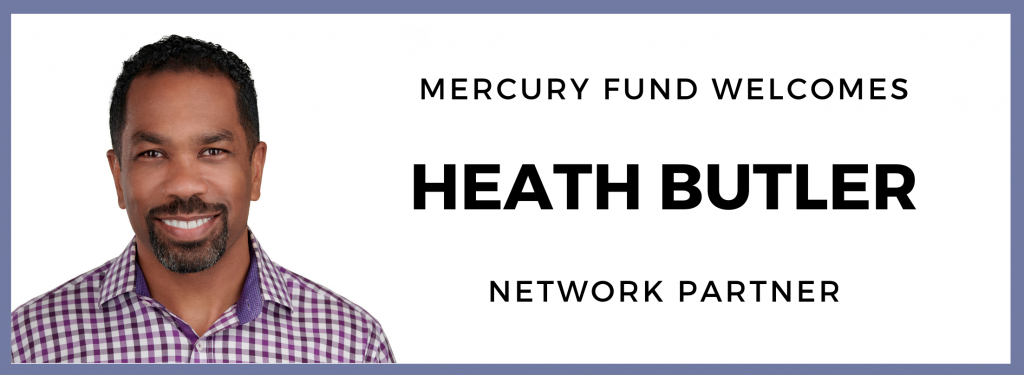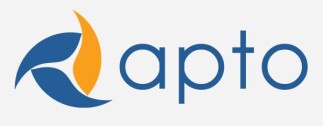Mercury Fund is excited to welcome Heath Butler, Network Partner, to our team! Learn more below about Heath, his deep experience in the Houston startup ecosystem, and why we are so excited to have him on board.

1. You have a lot of experience mentoring, advising, and investing in startup software companies. Can you tell us about your experience at Gestalt Theory Venture Partners and how you got involved with the Mercury team?
Upon leaving my corporate executive position at Insperity, I had early visibility into the launch of coworking accelerator Station Houston. I was an active mentor at Station, and for over a year I listened to startup ideas, advised entrepreneurs, and identified investment opportunities. Although a lot of the deals were too early to invest angel capital, I thorougly enjoyed helping entrepreneurs navigate their journey and knew I wanted to leverage the knowledge and experience I had developed over the past 20 years to advise and invest in early stage, high-growth opportunities. I started Gestalt Theory three years ago as a venture studio and private angel fund to invest in opportunities that represented the right balance and mix of ideas I was passionate about and those I believed could create tremendous value for customers. Through 2019, Gestalt Theory has made 20 early-stage investments in 15 companies.
Over the course of working in the Houston startup ecosystem, I came to know the Mercury team well. Most of the formal connectivity with the Mercury team came through my executive role at Insperity, where I led corporate development. After leaving Insperity and engaging deeper into the innovation community, the synergies of how I could be valuable to Mercury Fund started to align more and more. I’m excited to join the team and I’m looking forward to contributing to the organization’s continued success!
2. Your title is ‘Network Partner’ at Mercury Fund. What is a Network Partner and how will your role directly benefit Mercury’s startups?
In addition to adding value to the investment side of the equation, the Network Partner role manages the critical service provider relationships and, more importantly, corporate customer and partner relationships that help portfolio companies scale and grow. Although the role is new to Mercury, the actual work is not. Most of the Mercury team has been managing service provider and corporate partner relationships that bring significant value to the portfolio for quite some time. The Network Partner role is our opportunity to formalize this work and institutionalize it across the Mercury Fund ecosystem.
3. Talk about your experience as a business and corporate development executive at human capital management service provider Insperity, and how this experience will be helpful to our portfolio companies.
I always get excited when talking about my time at Insperity as it was one of the best experiences of my life! Insperity is an awesome company and I had an amazing run with the organization. When I joined in 2002, they were transforming their services organization and my consulting experience proved to be a great fit for their needs. This allowed me to navigate to a Director of Strategic Alliances role that significantly expanded partnerships and ancillary revenue. In 2011, as the company transitioned its brand from Administaff to Insperity, the organization looked to expand the depth and breadth of its technology portfolio and we implemented a corporate development-led buy-build-partner strategy. I had the opportunity to lead a multi-pronged role of heading up business development, playing a pivotal role on our M&A team, and playing a sales and marketing oversight role for our newly acquired portfolio of ancillary businesses. My team and I were tasked with managing this portfolio as separate business units. I ended up leading one of the business units for a couple of years through a transition from Irvine, CA to our corporate headquarters in Houston. Most of my time was spent on business strategy, sales and marketing plans for the portfolio. This experience gave me great experience into what it takes to help early-stage companies succeed at their go-to-market strategies, and what success looks like at scale.
4. Over the last few years, Houston’s startup and tech ecosystem has grown rapidly through the help of numerous startup development organizations. Outside of working with Mercury, what are other ways that you are involved in the tech community?
When I left my full-time role with Insperity, I made Station Houston my new home, leveraging my engagement with Station, my role within the Rice Alliance ecosystem, and an innovation ecosystem advisory role with Insperity to add value to entrepreneurs within the startup community. Over the past three years I’ve had the benefit of visiting about a dozen developing innovation ecosystems outside of the Bay Area, Boston, Austin and New York. I’m excited about Houston’s opportunity to become a top 10 city for innovation over the next five years. For us to succeed, we need to fully enable the diversity that truly makes Houston unique. To that mission, I’ve partnered with a team of like-minded entrepreneurs to form Urban Capital Network (UCN), an investment group focused on aggregating non-traditional investors who want access to exclusive private dealflow but are also committed to closing the wealth, job, and innovation gaps in under-represented communities. Our model requires investors to commit to donate a portion of their profits to a non-profit diversity investment fund to gain access to exclusive investment opportunities, such as high-growth startups and venture capital funds. This way, we “create” a new at-risk pool of money to ignite investment into urban communities that are significantly underserved in venture investments. I am fascinated and inspired daily by the creativity, perseverance and sheer will-to-win of Houston entrepreneurs and look forward to helping them succeed.
5. Part of your role at Mercury is to help manage the firm’s post-investment, Operational Hygiene playbook and processes. What is one piece of advice you would give entrepreneurs as to why improving operational processes are just as important as scaling sales in an early-stage, high-growth startup?
The Mercury playbook aims to ensure our portfolio companies have best-in-class infrastructure in place to build out each of their functional pillars for optimal scale and growth. It’s purposely designed to initially slow companies down in an effort to help them speed up! Too often, many high-growth companies that have raised money skip some of the proper building blocks in lieu of topline growth. They make the conscious decision to “fix the operational stuff” later and unfortunately, the operational gaps that were not properly addressed upfront cause them to lose customers, growth and momentum. I once heard the phrase, “lessons will be taught until learned.” Mercury believes, especially in repeat buying environments such as SaaS and Cloud software (recurring & reoccurring), you must create leverage in your business model by minimzing customer acquisition cost (CAC) and maximizing the lifetime value of the customer (LTVC). To do this, you can’t have any leaking buckets and the customer must believe they are getting the value you promised each and every month.



